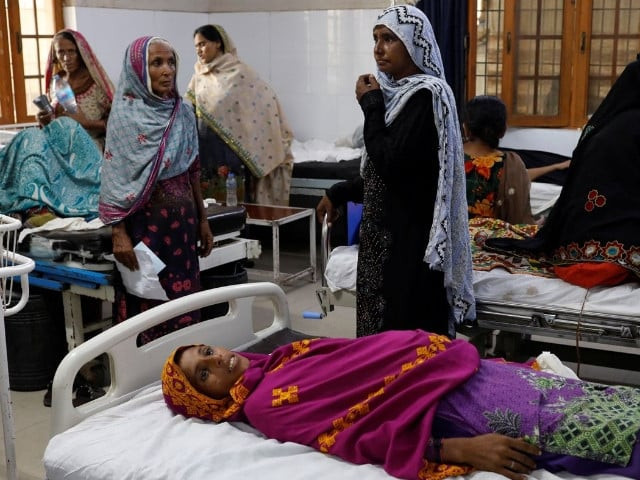The Maternity Crisis in Lahore: A Call for Immediate Action
Lahore, a bustling city known for its rich culture and history, is facing a troubling crisis in maternity care that can’t be ignored. Major teaching hospitals, like Lady Willingdon and Ganga Ram, are overwhelmed, struggling with a severe shortage of beds and staff. Imagine having to share a bed with another expectant mother during one of the most vulnerable times in your life. Unfortunately, this is the reality for many women seeking care in Lahore.
Patients like Kainat describe their experiences in harrowing detail. Waiting in long queues just to get a check-up can be disheartening. With costs soaring in private hospitals, many women simply can’t afford the Rs150,000 price tag for a natural birth. While the government promises free treatment in public facilities, the reality often tells a different story. Women are forced to give birth on hospital floors or are referred to other facilities, only to find them equally strained.
Statistics reveal a disturbing truth: Punjab’s maternal mortality rate is at 157 deaths for every 1,000 live births. This staggering number highlights the urgent need for reform. Despite initiatives announced by the Punjab government—like new hospitals and mobile health units—experts express skepticism. Dr. Zainab Ali Khan notes that problems at the primary healthcare level are being overlooked. Strengthening these services could significantly reduce the pressure on Lahore’s already burdened hospitals.
Dr. Shahid Malik, President of the Pakistan Medical Association, emphasizes that an ineffective patient referral system exacerbates the issue. Many minor complications land at larger hospitals, stretching resources thin. He argues for the establishment of district hospitals to relieve the mounting pressure on major facilities.
The rapid population growth in Lahore contributes to this crisis, according to Dr. Salman Kazmi from Mayo Hospital. Facilities originally designed for fewer patients now struggle to accommodate double the number. This situation calls for immediate action—investments in beds, recruitment of healthcare staff, and the introduction of modern medical equipment are essential for improvement.
Lahore’s maternity crisis is a complex issue that requires a multi-faceted approach. The time to act is now. For those who are concerned about maternal health in Lahore and want to stay updated on initiatives and solutions, connecting with organizations like Pro21st can be a valuable step. Let’s work together to ensure that every woman receives the care she deserves during this critical time in her life.





